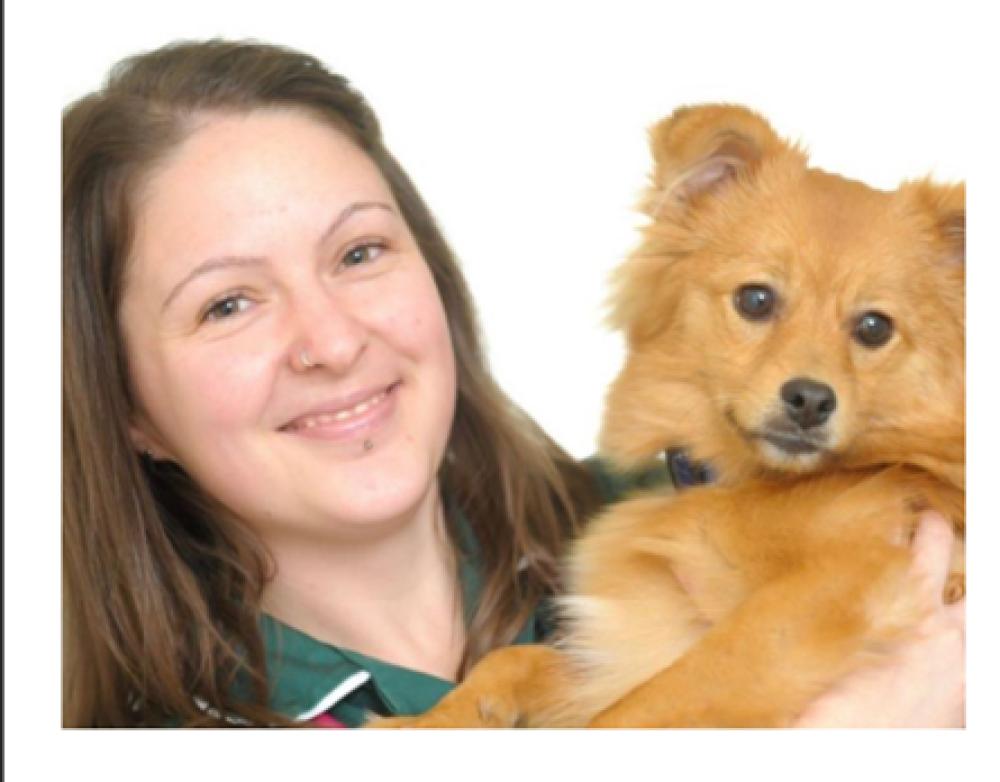Explore the horizon of advanced knowledge in Emergency and Critical Care Nursing
The Online Learning Advanced Nurse Certificate in Emergency and Critical Care. Designed for those with a foundation knowledge in emergency and critical care, this advanced programme goes beyond the basics covered in the Emergency and Critical Care NCert programme. Dive deeper into topical subjects such as transfusion medicine, and toxicology.
What you’ll learn...
-
Discover how to craft an ECC work environment that benefits you, your team, your patients, and your clients.
-
The programme also includes an exciting module on effective clinic management, encompassing physical, mental, and emotional well-being, continuous training and development, and mastering communication amidst challenging emergency cases.
-
We will cover more advanced topics which either were not covered in the NCert in Nursing ECC or were discussed in brief and will be explored in greater depth.
Why choose this programme?
-
A fundamental component of this programme is the encouragement of veterinary nurse CPD as self-education as well as the involvement in live webinar and journal club discussions.
-
Aimed at veterinary nurses with a particular interest in ECC or who work within an ECC or referral hospital setting, this programme is designed to provide you with more specialised knowledge and skills.
-
This programme also aims to create links and connections within the veterinary ECC community via the online discussion forum, while also providing a supportive learning environment and flexibility due to the course being 100% online.
Understanding pre-requisites
Although no pre-requisite is required to join this programme and achieve its associated ISVPS (International School of Veterinary Postgraduate Studies) qualification, it is strongly recommended that delegates considering enrolling have one of the following:
-
Have previously achieved an ISVPS NCert or VTCert in Emergency and Critical Care Nursing (or its academic equivalent.)
or
-
Have 5+ year's experience in general practice as a Veterinary Nurse. So that you are confident in your knowledge of common surgical procedures and have an appreciation of resource material from where further research can be undertaken into more unusual conditions and/or situations. An understanding of normal anatomy and physiology, and how these impact on the pathogenesis and surgical treatment of various conditions will be expected.
Hear what our delegates have to say
Don’t just take our word for it - our delegate feedback speaks for itself.
Key features of this programme
Comprehensive 100% online training
One year RCVS Knowledge Library access
Discussion forum
Recognised Course Director
Dedicated Programme Coordinator
Accredited CPD
Comprehensive 100% online training
One year RCVS Knowledge Library access
Discussion forum
Recognised Course Director
Dedicated Programme Coordinator
Accredited CPD
Programme details
Module Summary
01 - The Practical Approach to ECC Patient Management and Care
Key Learning Objectives:
- Differentiate between nutritional support protocols required to care for the ECC patient, including enteral and parenteral feeding techniques.
- Investigate the factors that account for patient comfort in the ECC situation: pathology, environmental factors, and ethics.
- Design nursing care bundles for neurological compromise in the ECC setting: inflammatory, infectious, neoplastic, and autoimmune.
- Design nursing care bundles for cardiovascular compromise in the ECC setting: shock, sepsis, and trauma.
- Critique different management strategies for a respiratory compromised patient: low flow oxygen, high flow oxygen, and CPAP (continuous positive airway pressure).
- Design a nursing care bundle to manage a patient requiring mechanical ventilation.
- Investigate infection control strategies in the ECC setting, ensuring safety of staff, patent, and client.
02 - The Practical Approach to ECC Patient Management & Care Webinar
In this live online webinar, the module author will delve deeper into a topic from the The Practical Approach to ECC Patient Management & Care module.
03 - Transfusion Medicine in the ECC Setting
Key Learning Objectives:
- Revise the anatomy and physiology of haemostasis in the “normal” patient.
- Differentiate between different pathophysiology of common haemostasis disorders: rodenticide intoxication, DIC, haemophilia, VWD, hyperfibrinolysis.
- Appraise diagnostic techniques available to assess the bleeding patient: PCV, TP, blood smear, haematology, Pt& APTT, and viscoelastography.
- Interpret results of these diagnostic tests, consider how to present these findings to the veterinary team.
- Compare the different blood products used in the clinical setting.
- Critique the different administration techniques available in the clinical setting.
- Discuss the term “massive transfusion”, accounting for indications and complications.
- Compare transfusion monitoring methods, accounting for signs of a potential transfusion reaction.
- Critique “gold standard” blood product storage, including accessibility and limitations.
- Describe what is meant by a transfusion “trigger point”, discuss how this may differ for the individual scenario/patient.
- Judge the criteria for canine and feline blood donor selection in the UK.
- Defend the ethical considerations involved in blood product collection, storage and usage in the clinical setting.
04 - Transfusion Medicine Journal Club
In this online journal club, with the help of the module tutor, you will reflect upon and critique a recent peer-reviewed journal article on a transfusion medicine topic.
05 - Toxicology
Key Learning Objectives:
- Design a protocol for performing a “toxin” triage for a patient suspected of toxin exposure.
- Describe the principle of ADME (adsorption, distribution, metabolism, excretion) to understand the toxicity principles.
- Examine common toxins in the UK, including risks to the patient, care giver and clinical staff in the following categories: illicit drugs, plants, house & garden products, food products, and medications.
- Discuss the different diagnostic tools that may be utilised to assess for toxin exposure.
- Critique diagnostic tests used for a toxin exposure, considering how to present these to the veterinary team.
- Develop emergent management strategies/decontamination techniques required for a patient following toxin exposure. Consider indications and complications.
- Discuss ongoing/chronic management strategies needed following toxin exposure.
- Assemble a “tox-box”: judge the application of the constituents.
- Discuss the legal implications surrounding toxin exposure, referring to elicit drugs, imported plants/animals and malicious poisoning.
06 - Toxicology Webinar
In this live online webinar, the module author will delve deeper into a topic from the Toxicology module.
07 - Professionalism in the ECC Setting
Key Learning Objectives:
- Evaluate the rational of staff pursuing a role in the ECC setting, referring to OOH and day working, compared to those working in a “traditional” practice setting.
- Compare the role of a manager, leader and employee; considering the legal features and value each role has in the veterinary team.
- Formulate a staffing structure for an ECC service in varied clinical settings.
- Examine the risk factors that directly/indirectly affect physical, mental, and emotional health of ECC employees.
- Design strategies to manage these health risk factors in the clinical environment, to include support and training available for all staff.
- Appraise different techniques to approach/manage “difficult” interactions with colleagues and members of the public.
- Discuss how mindfulness in the workplace can promote longevity of the clinical team.
- Construct a continuous improvement plan to recognise training needs for the ECC team, to include implementation and assessment.
- Investigate how coaching team members can promote lifelong continued professional development.
- Differentiate between the professional organisations available to support all staff in the workplace, referring to what support they provide.
08 - Professionalism in the ECC Setting Journal Club
In this online journal club, with the help of the module tutor, you will reflect upon and critique a recent peer-reviewed journal article on a 'professionalism in the ECC setting' topic.
Qualifications
If you wish to obtain the Advanced award qualification will need to complete all four online interactive modules which are made available every other month and attend webinar/ journal club sessions online.
Within every two-month block, you will be required to complete an assignment or a practice-based task. These will form part of the formative assessment and must be completed in order to complete the associated module.
Please note there will be a minimum mandatory requirement to attend at least one journal club and one webinar event however it is strongly recommended to attend all four live events to maximise learning.
Pricing
£1,999.00
£2,298.00£480.00
Payment & VAT Information
1. Many of our courses come with deferred payment and instalment options. Click “Book Now” to see what’s available for this course.
2. All prices will be displayed exclusive of local sales tax.
Payment Terms & Conditions
Registration Information
100% Satisfaction
We're completely confident in the quality of our training and CPD. So much so that if you're not 100% satisfied with your certificate course, we'll give you a 100% refund. Just get in touch with us within 30 days of your start date and we'll sort the rest. T's and C's apply.
Find out moreFAQs
Payments & Finance
What payment methods do you accept?
Do you offer any flexible payment plans?
What payment methods can I use for setting up a direct debit?
Do you issue separate invoices for each instalment?
Why was my Direct Debit payment not charged on the day that is established in my payment plan?
Why couldn’t I make payment during check-out?
Where can I find the bank details for the bank/wire transfer?
What happens if my circumstances change and I need to cancel my order?
When is payment for my veterinary CPD course due?
How much do the veterinary CPD courses and certificate programmes cost?
My course includes assessments with HAU, how do I make payment for these?
My CPD course includes assessments with ISVPS, how do I make payment for these?
Can I pay by Direct Debit?
Online Learning & Platform
Is there a discussion forum or way to interact with other delegates?
What happens if I lose internet connection or need to pause my session?
How do I track my progress in each online module?
Can I access course materials on mobile devices or offline?
What are the technical requirements to access online courses?
If coming from a non-European country – how would face-to-face module attendance work for the PgC?
How do I register for the GPCert and/or the PgC?
Is the PgC programme recognised by other countries?
Advanced Veterinary Nurse Certificates
What is the ISVPS Veterinary Nurse Advanced Certificate (VNAdvCert)?
Does the Nurse Advanced Certificate award postnominals?
How will I be assessed for the advanced veterinary nurse certificate?
How long is the advanced veterinary nursing programme?
What does the programme fee for the vet nurse advanced certificate include?
What’s not included in the programme fee? Do I need to budget for any other costs?
Am I eligible for the advanced veterinary nursing certificate programmes?
No ordinary online learning experience
Learn with the leading global provider of online veterinary CPD!
Find out more







